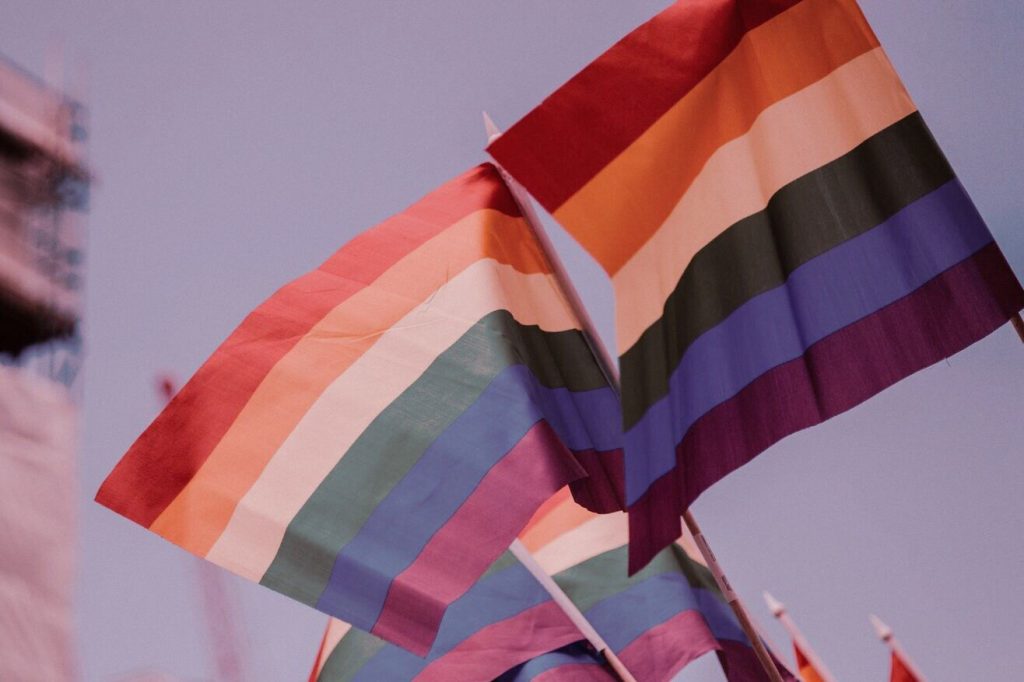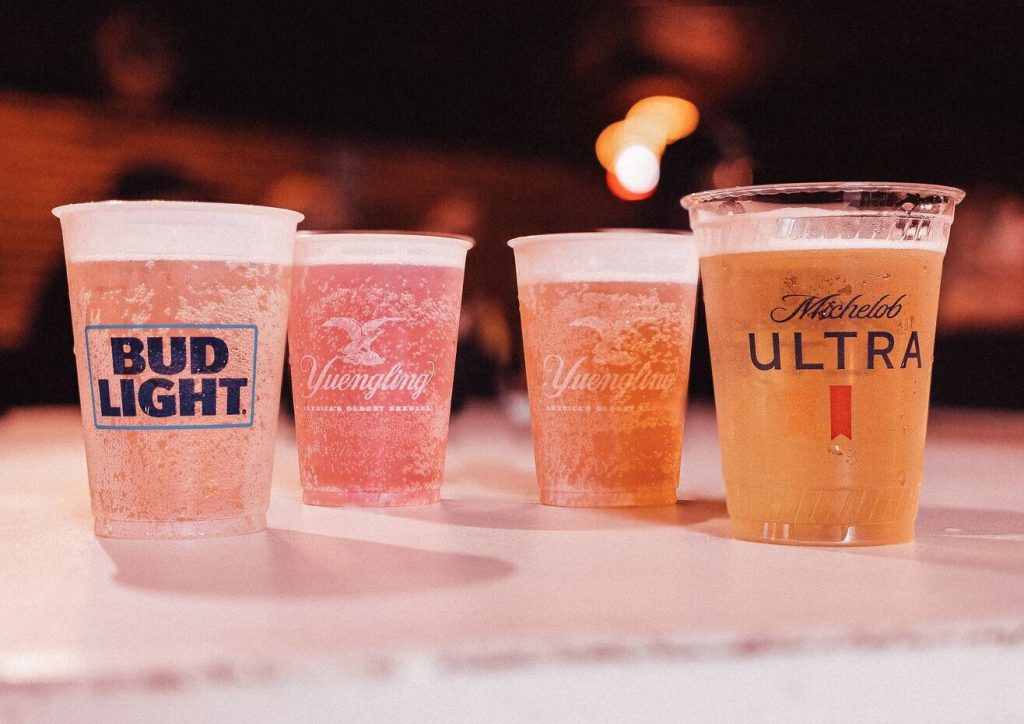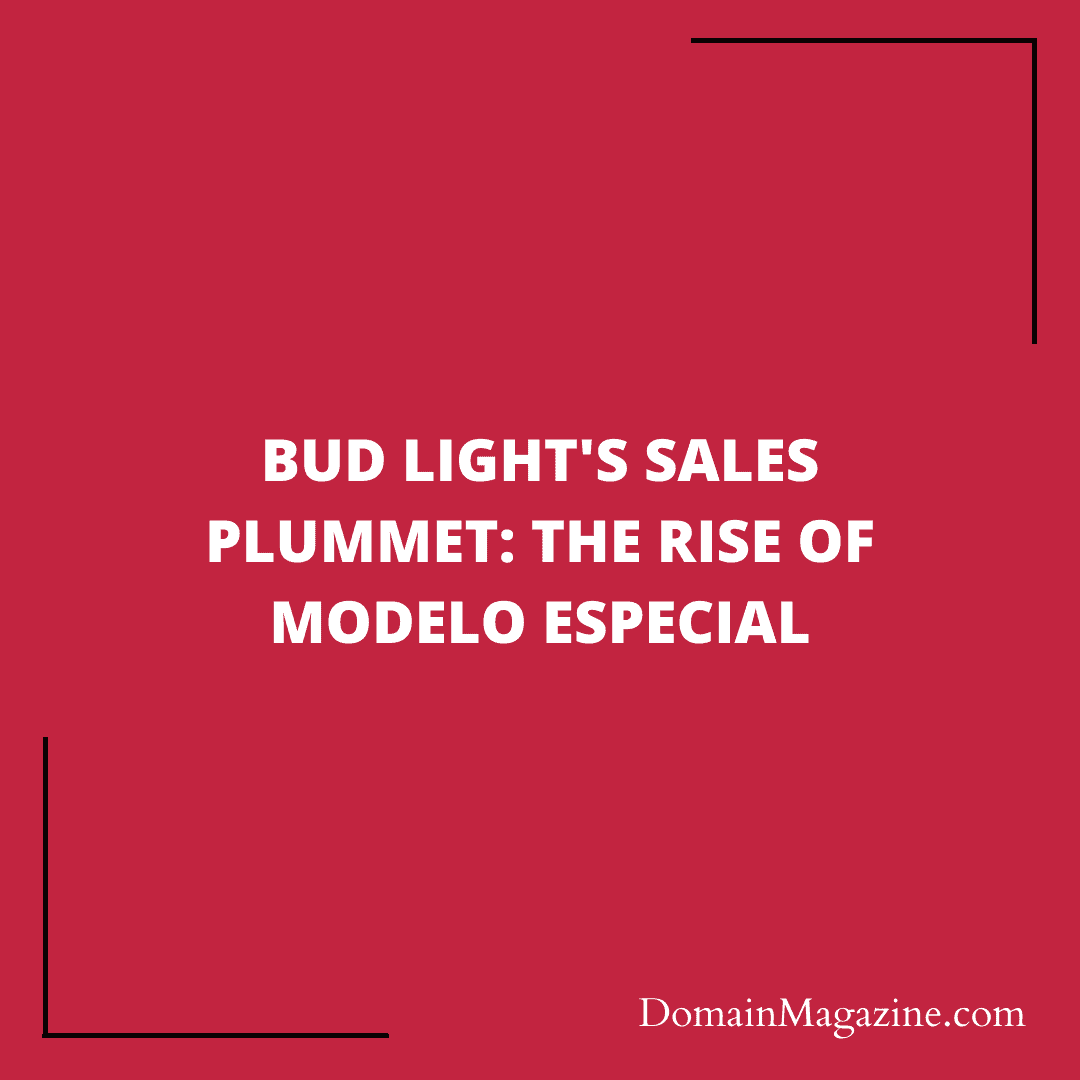In a surprising turn of events, Modelo Especial has dethroned Bud Light as the top-selling beer in the United States. This Mexican lager has dominated the market for the second consecutive month, surpassing Bud Light in both dollar sales and volume. The sudden decline in Bud Light’s sales can be attributed to a series of controversial events that have sparked backlash and boycotts. This article delves into the reasons behind Bud Light’s plummeting sales, explores the intersection of politics and business, and examines whether brands should engage in political issues.
The Fall of Bud Light
Bud Light, the long-reigning champion of beer sales in America, has experienced a significant decline in recent months. According to Nielsen data analyzed by Bump Williams Consulting, Bud Light witnessed a staggering 28.5% decrease in sales dollars and a 32% dip in volume in the week ending July 1. This downward trend can be attributed to a series of events that started in early April.

The Politics Behind the Plunge
The world of business and politics often collide, and Bud Light found itself caught in the midst of this collision. The decision to create custom beer cans for transgender influencer Dylan Mulvaney was a bold move that aimed to showcase the brand’s support for inclusivity and diversity. However, what Bud Light didn’t anticipate was the political storm that would follow.
In today’s polarized society, even the most well-intentioned actions can ignite a firestorm of controversy. The custom beer cans, meant to celebrate “365 days of girlhood” for Mulvaney, faced both praise and criticism from different quarters. While some hailed Bud Light for championing transgender rights, others accused the brand of virtue signaling and exploiting a sensitive issue for commercial gain.
The backlash was swift and fierce. Social media platforms became battlegrounds, with users passionately expressing their opinions, both in support and opposition to Bud Light. Hashtags calling for boycotts of the brand started trending, and consumers vowed to turn their backs on the once-beloved beer.
The case of Bud Light exemplifies the increasingly blurred lines between politics and commerce. Brands are now expected to take positions on social issues and align themselves with specific causes. While some consumers appreciate this stance, others view it as an intrusion into areas that should remain apolitical. The polarization of society often means that taking a stance on any issue is bound to alienate a portion of the consumer base.
The question arises: should businesses engage in political matters? Is it worth the risk of potentially alienating customers and suffering financial consequences? Bud Light’s decline in sales serves as a cautionary tale for brands venturing into the realm of politics. While some consumers applauded Bud Light’s support for transgender rights, others felt the brand had crossed a line, and their allegiance shifted elsewhere.
As the saying goes, “you can’t please everyone,” and that rings especially true in today’s politically charged climate. Businesses must carefully consider the potential consequences of their actions and the impact on their bottom line. While taking a stand on social issues can garner positive attention and support, it can also result in fierce backlash and financial losses.
The controversy surrounding Bud Light and the subsequent decline in sales highlight the challenges that brands face when navigating the treacherous waters of politics. The lesson here is clear: businesses must be mindful of the potential implications of their actions and decisions. While it’s crucial to stand for principles and values, it’s equally important to understand the diverse perspectives of consumers and the potential impact on the brand’s reputation and sales.
Modelo Especial Takes the Lead
Modelo Especial seized the opportunity and capitalized on Bud Light’s misfortune. This refreshing Mexican lager witnessed an 11.4% increase in dollar sales and a 5.7% rise in volume during the same period. As a result, Modelo Especial has now become the top-selling beer in terms of both sales dollars and volume, surpassing Bud Light, which had held the throne since 2001.

Should Politics and Business Mix?
The case of Bud Light raises an important question: should politics be brought into the realm of business? The intersection of politics and brands can have profound effects on consumer behavior and ultimately impact sales. In Bud Light’s case, the attempt to support transgender inclusivity backfired, leading to a significant decline in sales. This serves as a cautionary tale for brands venturing into politically sensitive territory.
The Consequences of Boycotts
As Bud Light’s sales continue to plummet, the consequences extend beyond the brand itself. A recent YouGov survey revealed that Bud Light has fallen to the 14th spot among the country’s favorite beers, jeopardizing the livelihoods of the 65,000 people whose economic well-being is intertwined with Anheuser-Busch InBev‘s success. Anheuser-Busch CEO Brendan Whitworth took full responsibility for the controversial promotion and expressed concern for the employees affected by the boycotts.
Rebuilding Trust and Reclaiming the Throne
In an effort to revive sales and regain consumer trust, Anheuser-Busch has launched a new summer campaign. CEO Brendan Whitworth and Bud Light’s brand head Todd Allen have tripled their investments this year, allocating more funds to sports, primetime, and cable television advertisements. Whether these efforts will be sufficient to rectify the situation and rebuild Bud Light’s tarnished reputation remains uncertain.
The rise of Modelo Especial and the fall of Bud Light exemplify the delicate relationship between politics and business. While brands have the potential to shape and influence societal issues, the consequences of misaligned messages can be detrimental. The case of Bud Light serves as a cautionary tale for companies navigating the treacherous waters of political activism. As consumers become increasingly conscious of the social stances taken by brands, it is crucial for businesses to carefully consider their actions and the potential impact on their bottom line. Only time will tell if Bud Light can regain its former glory or if Modelo Especial will continue its reign as the top-selling beer in America.


Join the Discussion